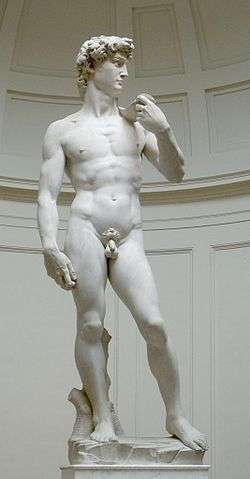1500s (decade)
The 1500s ran from January 1, 1500, to December 31, 1509.
| Millennium: | 2nd millennium |
| Centuries: | |
| Decades: | |
| Years: | |
| Categories: |
|


Events
1500
January–June
- January 5 – Duke Ludovico Sforza recaptures Milan, but is soon driven out again by the French.
- January 26 – Spanish navigator Vicente Yáñez Pinzón reaches the northern coast of Brazil.[1]
- February 17 – Battle of Hemmingstedt: The Danish army fails to conquer the peasants' republic of Dithmarschen.
- April 22 – Portuguese navigator Pedro Álvares Cabral officially discovers Brazil, and claims the land for the Kingdom of Portugal. He has 13 vessels with him.
July–December
- July 14 – The Muscovites defeat the Lithuanians and the Poles in the Battle of Vedrosha.
- August – : The Turkish fleet of Kemal Reis defeats the Venetians in the Second Battle of Lepanto. The Turks proceed to capture Modon and Coron, the "two eyes of the Republic".
- August 10 – Diogo Dias discovers an island which he names St Lawrence (after the saint's day on which it was first sighted), later to be known as Madagascar.
- November 11 – Treaty of Granada: Louis XII of France and Ferdinand II of Aragon agree to divide the Kingdom of Naples between them.
- November 16 – Emperor Go-Kashiwabara accedes to the throne of Meiō era Japan.
- December 24 – The Siege of the Castle of St. George ends, and the island of Cephalonia is captured by a joint Venetian–Spanish fleet.
- December 31 – The last incunable is printed in Venice.[2]
Date unknown
- Europe's population is estimated at 56.7 million people (Spielvogel).
- Heinrich Cornelius Agrippa is admitted to baccalaureate.
- Saxony's mint at Annaberg begins producing guldengroschens.
- Although other reports exist, it is thought that the last wolf in England was killed this year, making the species extinct in that country. The wolf is thought to have been killed in Allithwaite, in Cumbria. However, reports of wolf sightings and laws concerning wolf bounties existed in rural areas of the north until the 18th century.
- A group of Māori migrated east from modern day New Zealand to the Rēkohu islands, developing a distinct pacificist culture known as the Moriori (approx date)
== {{dr|y|y|{{{year}}}0|{{{1}}}|n{{#ifexpr:{{{year}}}<10|a}}}} == {{trim|{{transcluded section|{{dr|y|y|{{{year}}}0|{{{1}}}|n{{#ifexpr:{{{year}}}<100|a}}}}}} {{#section-h::{{dr|y|y|{{{year}}}0|{{{1}}}|n{{#ifexpr:{{{year}}}<100|a}}}}|Events}}}} == {{dr|y|y|{{{year}}}0|{{{1}}}|n{{#ifexpr:{{{year}}}<10|a}}}} == {{trim|{{transcluded section|{{dr|y|y|{{{year}}}0|{{{1}}}|n{{#ifexpr:{{{year}}}<100|a}}}}}} {{#section-h::{{dr|y|y|{{{year}}}0|{{{1}}}|n{{#ifexpr:{{{year}}}<100|a}}}}|Events}}}} == {{dr|y|y|{{{year}}}0|{{{1}}}|n{{#ifexpr:{{{year}}}<10|a}}}} == {{trim|{{transcluded section|{{dr|y|y|{{{year}}}0|{{{1}}}|n{{#ifexpr:{{{year}}}<100|a}}}}}} {{#section-h::{{dr|y|y|{{{year}}}0|{{{1}}}|n{{#ifexpr:{{{year}}}<100|a}}}}|Events}}}} == {{dr|y|y|{{{year}}}0|{{{1}}}|n{{#ifexpr:{{{year}}}<10|a}}}} == {{trim|{{transcluded section|{{dr|y|y|{{{year}}}0|{{{1}}}|n{{#ifexpr:{{{year}}}<100|a}}}}}} {{#section-h::{{dr|y|y|{{{year}}}0|{{{1}}}|n{{#ifexpr:{{{year}}}<100|a}}}}|Events}}}} == {{dr|y|y|{{{year}}}0|{{{1}}}|n{{#ifexpr:{{{year}}}<10|a}}}} == {{trim|{{transcluded section|{{dr|y|y|{{{year}}}0|{{{1}}}|n{{#ifexpr:{{{year}}}<100|a}}}}}} {{#section-h::{{dr|y|y|{{{year}}}0|{{{1}}}|n{{#ifexpr:{{{year}}}<100|a}}}}|Events}}}} == {{dr|y|y|{{{year}}}0|{{{1}}}|n{{#ifexpr:{{{year}}}<10|a}}}} == {{trim|{{transcluded section|{{dr|y|y|{{{year}}}0|{{{1}}}|n{{#ifexpr:{{{year}}}<100|a}}}}}} {{#section-h::{{dr|y|y|{{{year}}}0|{{{1}}}|n{{#ifexpr:{{{year}}}<100|a}}}}|Events}}}} == {{dr|y|y|{{{year}}}0|{{{1}}}|n{{#ifexpr:{{{year}}}<10|a}}}} == {{trim|{{transcluded section|{{dr|y|y|{{{year}}}0|{{{1}}}|n{{#ifexpr:{{{year}}}<100|a}}}}}} {{#section-h::{{dr|y|y|{{{year}}}0|{{{1}}}|n{{#ifexpr:{{{year}}}<100|a}}}}|Events}}}} == {{dr|y|y|{{{year}}}0|{{{1}}}|n{{#ifexpr:{{{year}}}<10|a}}}} == {{trim|{{transcluded section|{{dr|y|y|{{{year}}}0|{{{1}}}|n{{#ifexpr:{{{year}}}<100|a}}}}}} {{#section-h::{{dr|y|y|{{{year}}}0|{{{1}}}|n{{#ifexpr:{{{year}}}<100|a}}}}|Events}}}} == {{dr|y|y|{{{year}}}0|{{{1}}}|n{{#ifexpr:{{{year}}}<10|a}}}} == {{trim|{{transcluded section|{{dr|y|y|{{{year}}}0|{{{1}}}|n{{#ifexpr:{{{year}}}<100|a}}}}}} {{#section-h::{{dr|y|y|{{{year}}}0|{{{1}}}|n{{#ifexpr:{{{year}}}<100|a}}}}|Events}}}}
References
- Editors, History com. "Pinzon discovers Brazil". HISTORY. Retrieved 2019-10-11.CS1 maint: extra text: authors list (link)
- Robert James Bast; Andrew Colin Gow; Heiko Augustinus Oberman (2000). Continuity and Change: The Harvest of Late Medieval and Reformation History : Essays Presented to Heiko A. Oberman on His 70th Birthday. Brill. p. 122. ISBN 90-04-11633-8.